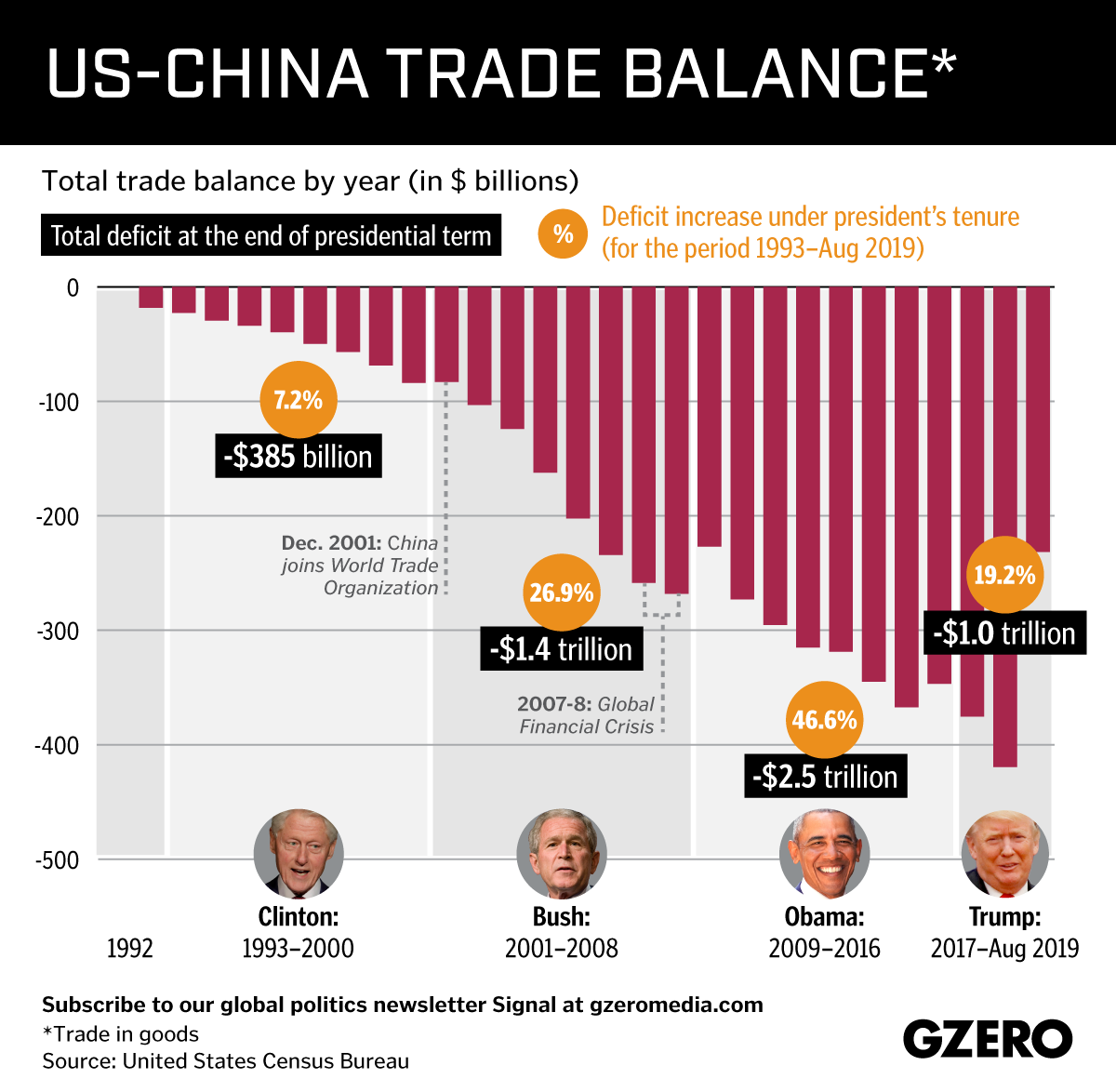Donald Trump announced a fresh "phase 1" trade deal with China last week, part of his ongoing bid to reduce the United States' huge trade deficit with China. The US has been buying more from China than China buys from the US for decades, but since coming into office Trump has made reducing that deficit central to his "America First" agenda. It's not easy to do. Consider that in 2018, after two full years of the Trump administration, the trade deficit with China actually swelled to its highest level since the Clinton years. That's because many perfectly healthy economic factors contribute to a trade deficit: stronger economic growth under Trump has meant more demand for foreign goods, so as long as the economy keeps humming along, it will be hard for Trump to reduce the deficit. Likewise, the strong US dollar makes foreign goods cheaper for US consumers to import, while China's own economic slowdown in 2018 decreased Chinese demand for American goods. For a historical perspective on all of this, here's a look at how the US-China trade balance has developed under each US president going back to 1993.
More from GZERO Media
Fifty years after the fall of Saigon (or its liberation, depending on whom you ask), Vietnam has transformed from a war-torn battleground to one of Asia’s fastest-growing economies—and now finds itself caught between two superpowers. Ian Bremmer breaks down how Vietnam went from devastation in the wake of the Vietnam War to becoming a regional economic powerhouse.
Eurasia Group and GZERO Media are seeking a highly creative, detail-oriented Graphic and Animation Designer who lives and breathes news, international affairs, and policy. The ideal candidate has demonstrated experience using visual storytelling—including data visualizations and short-form animations—to make complex geopolitical topics accessible, social-friendly, and engaging across platforms. You will join a dynamic team of researchers, editors, video producers, and writers to elevate our storytelling and thought leadership through innovative multimedia content.
While the Catholic world prepares for the funeral of Pope Francis on Saturday – the service begins at 10 a.m. local time, 4 a.m. ET – certain high-profile attendees may also have other things on their mind. Several world leaders will be on hand to pay their respects to the pontiff, but they could also find themselves involved in bilateral talks.
The Democratic Republic of the Congo and an alliance of militias led by the notorious M23 rebels announced a ceasefire on Thursday after talks in Qatar and, after three years of violence, said they would work toward a permanent truce.
Prime Minister Narendra Modi has blamed Pakistan for Tuesday’s deadly terrorist attack in Kashmir, and he’s takenaggressive action against its government.
Have you stayed atop GZERO’s news coverage this week? Here's your chance to prove it.
“When things are going fine, nobody really tests the skills and talents of their financial advisor, but this is a moment where really good advice can be extraordinarily powerful,” says Margaret Franklin, CFA Institute's CEO and President. In conversation with GZERO’s Tony Maciulis, Franklin describes the current financial climate as “maximum uncertainty,” rating it a 10 out of 10 on the risk scale.
On Wednesday, Donald Trump said he would deliver a “fair deal” with China and that he’d be “very nice” to the country after meeting with major retailers. But Beijing denies that there are any ongoing talks and has told the US it must cancel its unilateral tariffs before China will broker any negotiations.
